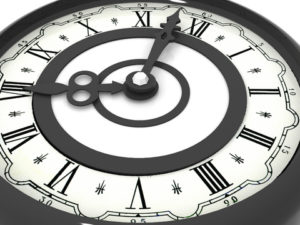by Joy Salyers, NC Folk Executive Director

How is your first work day on Daylight Saving Time winding down? If you are like some of my Facebook friends, it wasn’t an easy start. “Last time I was up before the sun it was to catch a flight for a fun weekend. Today is just to go to work . . . .” or “I like having the evening light longer but having to arrive at work again in the pitch black of night sucks!” And a rousing chorus of “I hate it and I wish it would go away!”
Now that I have children of my own, I realize that I was an extremely inquisitive child, except when it came to issues of tradition or culture. I just accepted customs without even thinking much about them. In this sense my children are NOTHING like me. I was explaining to the seven and five year-old why I wanted us to get to bed a little early. (I had this whole strategy of going to bed 15 minutes early Wednesday and Thursday, 30 minutes Friday, 45 minutes Saturday, and voilà – no melt downs Sunday morning! Yeah, that totally didn’t work.) They of course wanted to know “Why.” And when I explained about Daylight Saving Time their response was, “Why on earth do we do that?” To which I replied, “It doesn’t really make a lot of sense, and most people I know hate it, but it’s just a tradition most of our country has.”
Would you agree? Every year around this time newspapers and blogs run some story about DST; this year the focus was on growing research that it’s really pretty hard on our bodies. But as a folklorist, I was interested in the stories we pass around about the causes and/or value of DST. Why do we think we do it? So I took an extremely unscientific poll of friends and came up with the following results:
1) For the farmers. This was by far the most common response.
2) To save electricity.
3) A combination of 1 and 2 – “to save electricity for farmers.”
After these poll leaders, a few other responses garnered multiple votes: 4) World War II. 5) Kids going to or from school in the dark. 6) Benjamin Franklin.
Many of these responses have some relation to the (actually fairly complicated) story of Daylight Saving Time. Except the most popular – farmers mostly hate DST; in fact they formed the only organized lobby against it in the history of the country. The answers that are emphasized and passed along seem to be those that highlight everyday folks like farmers and school kids, or the great American trait of industriousness, whether through its saint Ben Franklin or through supporting the war effort.


In actuality, modern DST was first proposed by George Vernon Hudson, a New Zealand entomologist, who longed for more daylight hours after work to collect bugs. About ten years later, it was independently proposed by Englishman William Willett, who both wanted the working class to be more industrious and also wanted to play golf longer of an evening. Isn’t it interesting that our understandings of the “need” for this practice connect largely to values like conservation, industriousness, safety, and helping kids and farmers when it really relates at least as much to upper-class leisure and the lobbying of major industries like retailers (people shop later in the evening when it’s lighter) and oil companies? (All those wonderful outdoor activities we do in the longer light? Yep, we mostly drive to them.)
Which is not to say that energy conservation, war efforts, and Benjamin Franklin played no role in the convoluted story of this tradition. For the history geeks among you, stay tuned and tomorrow I will shed some light on those connections. In the meantime, kudos to the ONE respondent to my little poll who said, “It has to do with picking up insects. Or summer fun.” There you go!
Facts just confuse people when “cultural” behavioirs are in play. Having milked cows, I assure you that clocks have no invluence on their urgent need to relieve the udder pressure.
LOVE this article. I have long suspected the motives were not as noble as we would like to think.